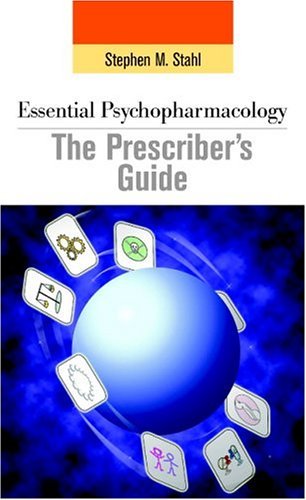지난번에 받은것.. Zeldox에서 작년 학회때던가 뿌렸었던듯.. 교수님이 심부름 했다고 챙겨주심.. 책은 쪼그만데.. 찾아보면 은근히 비쌈..
Mind
Kaplan & Sadock’s Comprehensive Textbook of Psychiatry,8/e(2Vols)
24만원.. 눈물을 머금고 샀다. Synopsis만으로도 헉헉대는데 말야..-_-;;
Essential Psychopharmacology: the Prescriber’s Guide
윗년차가 학회가서 경품으로 받아온거 줬다. 히히.. 안사고 버텼는데..ㅋㅋ 딴애들은 다 샀는데.. 별로 안본다 하더만.. 그래도 있으면.. 좋지머..ㅋ
DSM-IV Diagnoses and Codes – 번호순
290 Dementia of the Alzheimer’s Type, With Late Onset, Uncomplicated 290.1 Dementia Due to Creutzfeldt-Jakob Disease 290.1 Dementia Due to Pick’s Disease 290.1 Dementia of the Alzheimer’s Type, With Early Onset, Uncomplicated 290.11 Dementia of the Alzheimer’s Type, With Early Onset, With Delirium 290.12 Dementia of the Alzheimer’s Type, With Early Onset, With Delusions 290.13 Dementia of the Alzheimer’s Type, With Early Onset, With Depressed Mood 290.2 Dementia of the Alzheimer’s Type, With Late Onset, With Delusions 290.21 Dementia of the Alzheimer’s Type, With Late Onset, With Depressed Mood 290.3 Dementia of the Alzheimer’s Type, With Late Onset, With Delirium 290.4 Vascular Dementia, Uncomplicated 290.41 Vascular Dementia, With Delirium 290.42 Vascular Dementia, With Delusions 290.43 Vascular Dementia, With Depressed Mood 291 Alcohol Intoxication Delirium 291 Alcohol Withdrawal Delirium 291.1 Alcohol-Induced Persisting Amnestic Disorder 291.2 Alcohol-Induced Persisting Dementia 291.3 Alcohol-Induced Psychotic Disorder, With Hallucinations 291.5 Alcohol-Induced Psychotic Disorder, With Delusions 291.81 Alcohol Withdrawal 291.89 Alcohol-Induced Anxiety Disorder 291.89 Alcohol-Induced Mood Disorder 291.89 Alcohol-Induced Sexual Dysfunction 291.89 Alcohol-Induced Sleep Disorder 291.9 Alcohol-Related Disorder NOS 292 Amphetamine Withdrawal 292 Cocaine Withdrawal 292 Nicotine Withdrawal 292 Opioid Withdrawal 292 Other (or Unknown) Substance Withdrawal 292 Sedative, Hypnotic, or Anxiolytic Withdrawal 292.11 Amphetamine-Induced Psychotic Disorder, 더 읽기
DSM-IV Diagnoses and Codes – 알파벳순
316 [ Specified Psychological Factor ] Affecting [Indicate the General Medical Condition ] V62.3 Academic Problem V62.4 Acculturation Problem 308.3 Acute Stress Disorder 309.9 Adjustment Disorder Unspecified 309.24 Adjustment Disorder With Anxiety 309 Adjustment Disorder With Depressed Mood 309.3 Adjustment Disorder With Disturbance of Conduct 309.28 Adjustment Disorder With Mixed Anxiety and Depressed Mood 309.4 Adjustment Disorder With Mixed Disturbance of Emotions and Conduct V71.01 Adult Antisocial Behavior 995.2 Adverse Effects of Medication NOS 780.9 Age-Related Cognitive Decline 300.22 Agoraphobia Without History of Panic Disorder 305 Alcohol Abuse 303.9 Alcohol Dependence 303 Alcohol Intoxication 291 Alcohol Intoxication Delirium 291.81 Alcohol Withdrawal 291 Alcohol Withdrawal Delirium 291.89 Alcohol-Induced Anxiety Disorder 291.89 Alcohol-Induced Mood Disorder 291.1 Alcohol-Induced Persisting Amnestic Disorder 291.2 Alcohol-Induced Persisting Dementia 291.5 Alcohol-Induced Psychotic Disorder, With Delusions 291.3 Alcohol-Induced Psychotic Disorder, With Hallucinations 291.89 Alcohol-Induced Sexual Dysfunction 291.89 Alcohol-Induced Sleep Disorder 291.9 Alcohol-Related Disorder NOS 294 Amnestic Disorder Due to…[Indicate the General Medical Condition] 294.8 Amnestic Disorder NOS 305.7 Amphetamine Abuse 304.4 Amphetamine Dependence 292.89 Amphetamine Intoxication 292.81 Amphetamine Intoxication Delirium 292 Amphetamine Withdrawal 292.89 Amphetamine-Induced Anxiety Disorder 292.84 Amphetamine-Induced Mood Disorder 292.11 Amphetamine-Induced Psychotic Disorder, With Delusions 292.12 Amphetamine-Induced Psychotic Disorder, With Hallucinations 292.89 Amphetamine-Induced Sexual Dysfunction 292.89 더 읽기
DSM-IV 와 ICD-10간의 변환
말그대로.. 컨버터라는게 있으면 좋긴 할텐데.. 인터넷 어딘가에서 구한 Excel파일이다. 모 선생님은 입국하고 나서 이거 정리하느라 고생하셨다고 하는데.. 인터넷에 있으니..-_-;; 난 편하고나 ~ 1095001215.xls
Hill이 주는 전공의에의 충고
1014204872.pdf35년간의 분열증환자 전공의 치료와 전공의 교육의 경험을 토대로 하여 미국 Maryland 대학 정신과 교수 Hill은 정신과 초년생 전공의들이 꼭 알아두어야 할 사항들을 이렇게 열거하였다.(1955)우선 알아야 할 것은 분열증 환자에게로 부닥쳐 보기를 최소 2~3년 해야만 정신과 의사는 그 관찰과 경험을 종합하여 나름대로의 자기체계를 세울 수가 있다는 것이다. 정신과를 택한 의사들의 동기란 상당수에서 자신의 정신건강에 관심이 컸었거나 또는 친지 중에서 정신질환을 앓아서라는 경우가 많은데, 이것을 가지고 주위에서는 ‘치료자 자신이 정신병자이니 치료 할 능력이 없는 사람이 아니냐’는 주장을 한다. 이런 터무니없는 공격은 무시해 버려라. 치료자가 되려면 가장 중요한 것이 ‘인간에 대한 관심이 많아야 한다’는 점이다. 단, 이런 관심이 영아적인 호기심 infantile curiosity의 일종으로 자신이 이를 깨닫지 못한 경우에는 오히려 환자의 문제를 악화시킬 우려가 크다.인턴 과정을 마치고 1년차 레지던트가 되면 그 즉시의 충격은 말할 수 없이 크다. 신체질환을 치료하는데서 중요한 것은 진단을 내리기까지이고 그 뒤는 대개 관례에 따라 투약, 수술을 하는 것으로 끝나나 정신과에서의 진단은 그 중요성이 훨씬 덜하고 치료과정이 큰 과제가 되며, 치료자의 모든 행동과 성격이 치료를 좌우한다는데다 환자 또한 고분고분하지가 않다. 즉 이렇게 전혀 다른 기반에서 출발하는 것이 정신과 환자의 치료이라서 학생 때 배운 것으로는 큰 도움이 되지 않으니 그가 맛보는 실망과 경악, 고통은 이만저만이 아니다. 이때 까딱하면 인턴때의 습관이 남아 분열증환자에게서 신체증상만 찾아내려는 방어적 태도를 취할 수가 있다.처음 이들 레지던트의 눈에는 더 읽기


